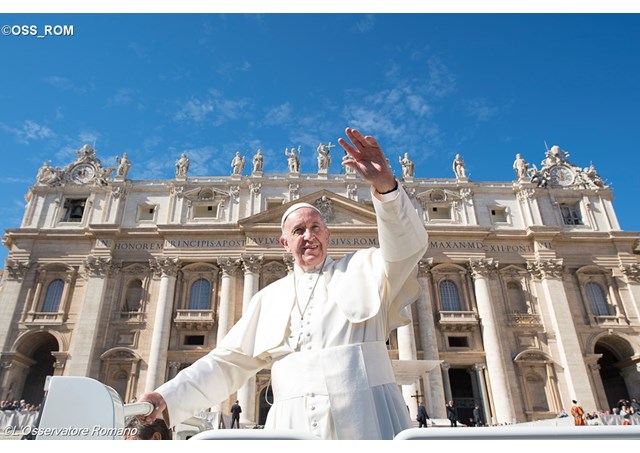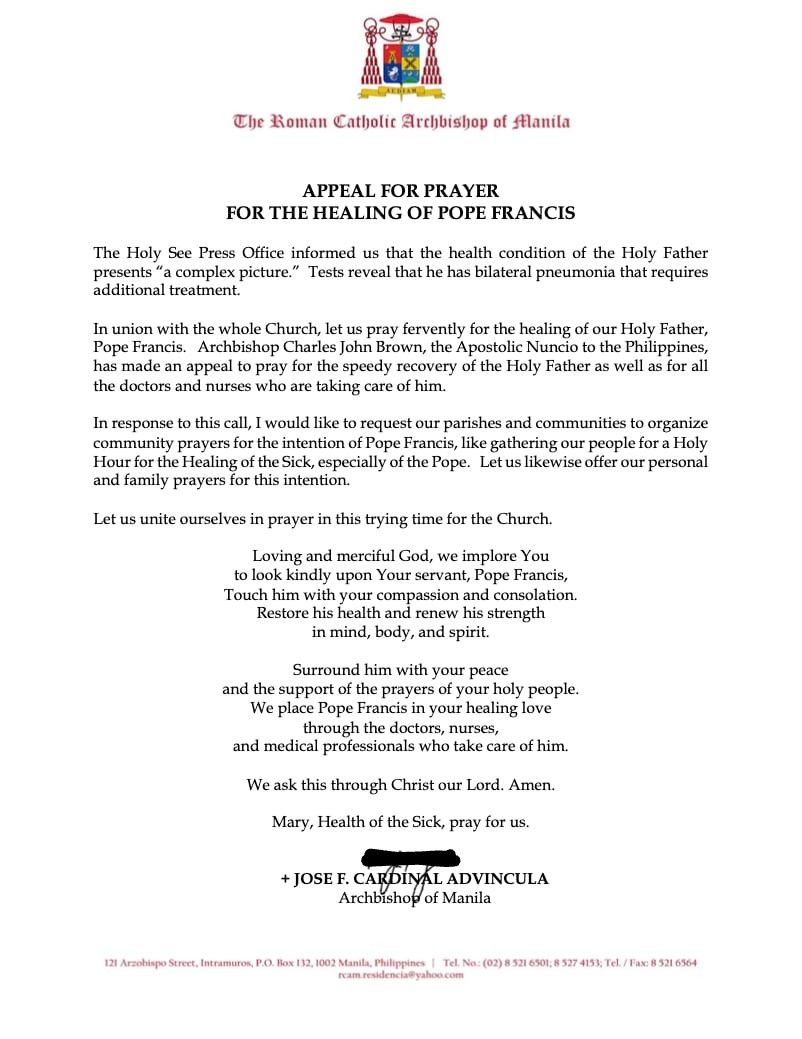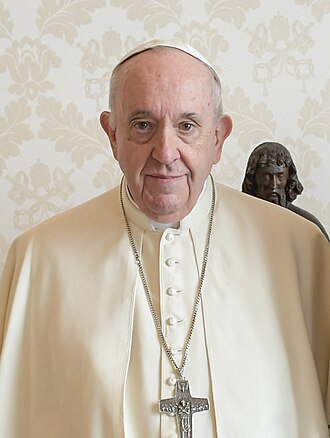
(Vatican Radio) After reflecting on the mystery of God’s mercy, from the actions of the Father in the Old Testament to those of Jesus, Who in the Gospels demonstrates by His words and gestures that He is the very incarnation of mercy, the Pope announced in this Wednesday’s general audience that he will dedicate a new cycle of catechesis to the corporal and spiritual works of mercy.
“It is not enough to experience God’s mercy in our lives”, the Pope observed. “It is necessary for those who receive it also to be a sign and instrument for others. … It is not a question of making great efforts or superhuman gestures. The Lord shows us a far easier path, made up of little gestures but which, in His eyes, have great value, to the point of saying that it is on these that we will be judged. … Jesus says that every time we give something to eat to a hungry person and give something to drink to one who thirsts, we dress the naked and welcome the stranger, or we visit the sick or imprisoned, we do this also to Him. The Church calls these gestures ‘corporal works of mercy’, as they assist people in their material needs”.
However there are also, as Francis recalled, another seven spiritual works of mercy, that respond to other equally important needs, “especially nowadays, as they affect the most intimate aspect of the person and often make them suffer more. We all surely remember one which has entered into common parlance: to bear patiently those who wrong us. … It may seem to be of little importance, or indeed make us smile, but instead it contains a sentiment of profound charity; and it is the same also for the other six, which are good to remember: to counsel the doubtful, to instruct the ignorant, to admonish sinners, to console the afflicted, to forgive offenses, and to pray for the living and the dead”.
“It is better to start with the simplest ones, that the Lord shows us as the most urgent. In a world that is unfortunately afflicted by the virus of indifference, works of mercy are the best antidote. They educate us, indeed, in attention towards the most elementary needs of ‘the least of our brothers’, in whom Jesus is present. … This enables us always to be vigilant, avoiding that Christ may pass by us without us recognising Him. St. Augustine’s phrase returns to mind: ‘I fear Jesus will go by’, and I will not recognise Him, that the Lord will pass by my side in one of these little people, in need, and I will not realise that it is Jesus”.
The works of mercy “reawaken in us the need and the capacity to make faith live and work through charity. I am convinced that through these simple daily gestures we can effect a true cultural revolution. … If each one of us, every day, did one of these, this would be a revolution in the world! But all of us, every one of us. How many saints are still remembered today not for the great works they performed but for the love they knew how to transmit! Mother Teresa, for example, recently canonised: we do not remember her for the many houses that she opened throughout the world, but because she stooped to all the people she met in the street to restore their dignity to them. How many abandoned children she held in her arms; how many dying people she accompanied on the threshold to eternity, holding their hands!”
“These works of mercy are the features of the countenance of Jesus Christ, Who cares for the least of His brothers to bring God’s tenderness and closeness to every one. May the Holy Spirit help us; may the Holy Spirit kindle in us the desire to live in this way. Do at least one of them a day, at least! Let us learn again by heart the corporal and spiritual works of mercy, and ask the Lord to help us to put them into practice every day and at the moment in which we see Jesus in a person in need”.










